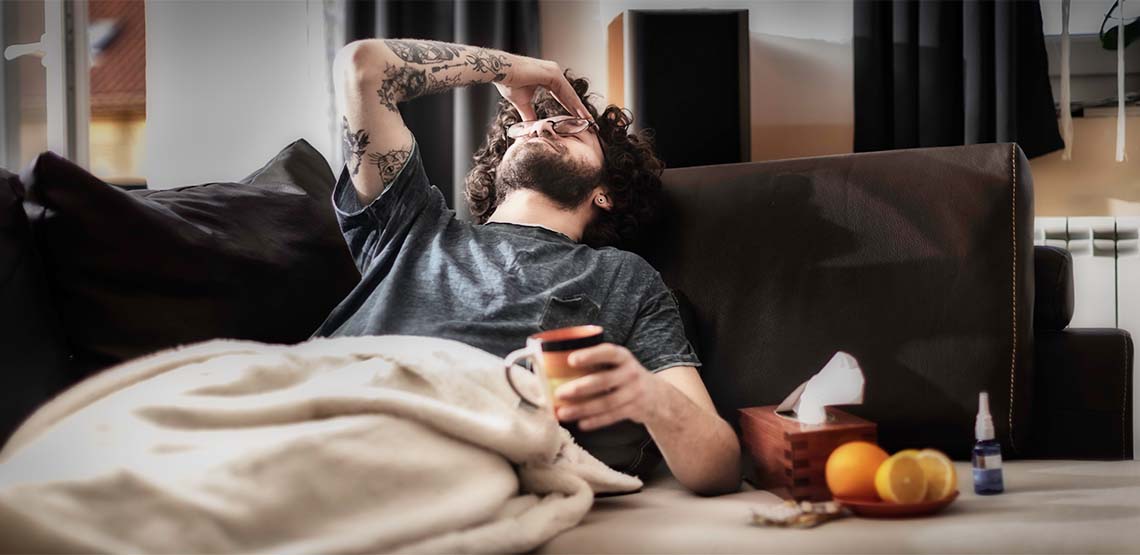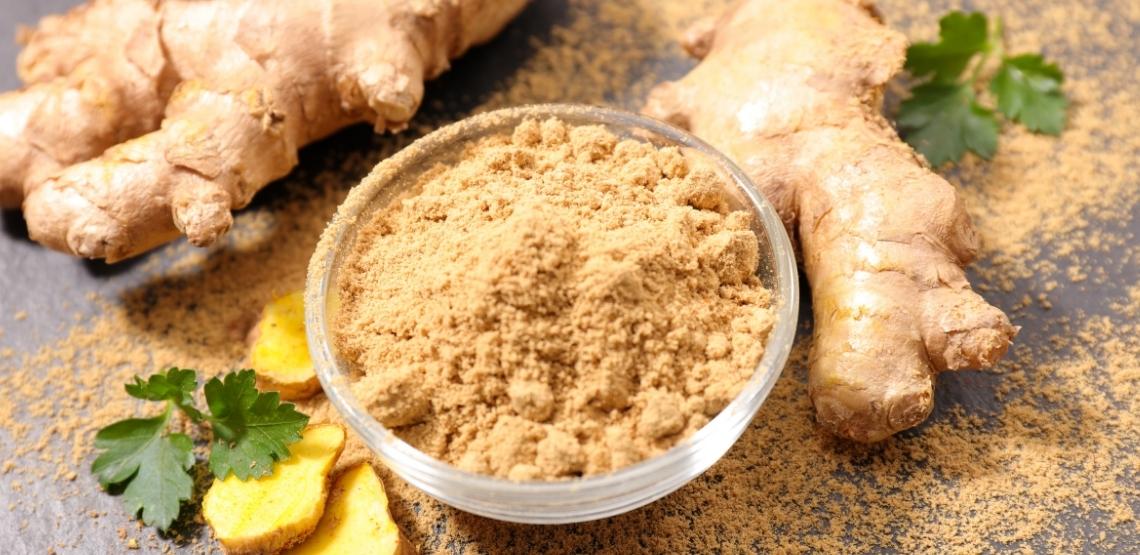How to Treat a Hangover
Consuming alcohol comes with side effects, which is why it's always important to stay hydrated while drinking. After a night of drinking, many people experience pounding headaches, sensitivity to light and sound, and fatigue, which are all well-known symptoms of a hangover. Here we will talk about how to treat a hangover, so you can get back to feeling well.
What is a Hangover?
The body’s unpleasant physiological response after drinking too many alcoholic beverages over a short period is commonly known as a hangover. The body metabolizes alcohol as a toxic substance, like acetaldehyde. (Acetaldehyde is a toxin and a carcinogen.)
In general, the body can effectively process one alcoholic drink per hour, ridding itself of toxins efficiently. More than that amount may increase the risk of a hangover because the body cannot adequately filter out the alcohol’s toxic byproducts.
Symptoms of a Hangover
A hangover differs from person to person due to a variety of factors. A person’s size, the amount consumed, the type of alcoholic beverage and a person’s health status are a few things that can influence whether an individual experiences a hangover or not. The following are commonly experienced signs of a hangover:
- Fatigue.
- Headache.
- Nausea.
- Diarrhea.
- Shaking.
- High blood pressure.
- Fast heart rate.
- Sweating.
- Clammy, pale skin.
- Dizziness.
Top 6 Treatments for a Hangover
As uncomfortable as a hangover can be, there is no immediate cure. There are, fortunately, steps a person can take to ease symptoms and speed up the process. The following are the top five treatments for a hangover.
1. Use Hydralyte Electrolyte Tablets
Hydralyte Electrolyte Tablets can be an effective option for those experiencing hangovers, as they can help to quickly rehydrate the body and replace electrolytes lost during excessive alcohol consumption. Hangovers are often caused by dehydration, as alcohol is a diuretic that can lead to increased urine production and fluid loss.
The tablets are designed to quickly dissolve in water and provide a balance of sodium, glucose and electrolytes, which can help to replenish fluids and restore optimal fluid balance. This can help to alleviate some of the symptoms of a hangover, such as a headache, nausea and fatigue.
2. Rehydrate Your Body
Individuals typically find themselves urinating often when they are inebriated. This effect is due to alcohol’s diuretic properties. To flush out the alcohol’s toxins, the body boosts its urinary processes. Alcohol prevents the release of a hormone called vasopressin, an antidiuretic hormone. Because alcohol inhibits vasopressin, the kidneys release more water and increase urine output.
After consuming alcohol, the body becomes dehydrated due to water loss. Drinking an adequate amount of water rehydrates the body and reduces the effects of dehydration. Consume water slowly and carefully, as rapid consumption of liquids can worsen nausea.
3. Have Some Caffeine
Chocolate, coffee and tea contain caffeine and are important treatments for a hangover. Caffeine counters the fatigue and grogginess that most people with a hangover experience and it alleviates headaches. It’s best to use caffeine sparingly. Like alcohol, caffeine is a diuretic, and too much caffeine can worsen hangover jitters.
Related Search Topics (Ads)
4. Replenish Your Body’s Nutrient and Sugar Levels
Along with water, the body loses vital nutrients due to water loss from consuming alcohol. Two vitamins in particular – zinc and B vitamins – can alleviate the symptoms of a hangover. Zinc and B vitamins are essential for healthy nerve function, immunity and metabolism and can help the body return to its natural state after a bout of heavy drinking. In addition, the shakiness and fatigue experienced during a hangover may be a direct result of sugar loss during an episode of drinking.
Nutrients like zinc and B vitamins are found in meats like poultry, eggs and other animal products. Eating sugary or carbohydrate-rich foods during a hangover can replace the energy lost during alcohol consumption. Foods like beef broth with noodles, chicken and rice soup, or fortified breakfast cereals have the nutrients your body needs and can make a hangover less painful.
5. Take an Anti-Inflammatory Pain Reliever
Pain relievers can reduce discomfort from headaches and muscle aches after drinking alcohol, though it is essential to be selective about pain relievers when experiencing a hangover. Pain relievers, such as acetaminophen, more commonly known as Tylenol, effectively reduce pain but do not do much for inflammation. When it comes to a hangover, inflammation is the cause of headaches and body aches.
Rather than choosing acetaminophen, hangover sufferers should choose aspirin or ibuprofen, like Advil, as acetaminophen can make the toxic effects of alcohol worse. Acetaminophen can cause further harm to the liver, especially when you are already compromised by alcohol.
6. Take a Nap
A night out on the town often results in a lack of sleep and a hangover. Since most hangovers are resolved after 24 hours, the best treatment for a hangover may be the most straightforward – sleep.
Sleeping off a hangover provides the body with rest and allows a person to recover at their own pace. Although hangovers don’t typically result in emergencies, the symptoms can make operating heavy machinery or performing detailed tasks exceptionally challenging and unsafe. Sometimes, the best way to treat a hangover is with some rest.
The Breathalyzer Will Catch You
A breathalyzer is a portable device that measures the concentration of alcohol in a person's breath. This compact and user-friendly tool has become an essential component of responsible drinking practices and law enforcement efforts. By simply exhaling into the device, the breathalyzer quickly provides an accurate estimation of the individual's blood alcohol content (BAC). If you're drinking, stay the night or get a ride.
‘Hair of the Dog’ Debunked
The term ‘hair of the dog’ refers to drinking more alcohol as a treatment for a hangover. The reasoning behind this intervention is that a hangover stems from alcohol withdrawal symptoms. Thus, the belief is that more alcohol can prevent withdrawal symptoms and slowly filter alcohol out of the body.
While drinking more alcohol may reduce some symptoms, it only prolongs the hangover. The body may respond more aggressively the longer alcohol remains in the system. What’s more, consuming alcohol to alleviate a hangover can lead to dangerous habits that may cause alcohol addiction.
No matter how uncomfortable your hangover may be, rest assured that it is temporary. Though there are no guaranteed shortcuts or hangover cures, it is a comfort to know that a hangover doesn’t last forever!
Article Resources
- National Institute on Alcohol Abuse and Alcoholism (Hangovers)
- Harvard Health Publishing (7 steps to cure your hangover)
- PMC (Vasopressin and alcohol: A multifaceted relationship)
- ScienceDirect (The effects of dehydration, moderate alcohol consumption, and rehydration on cognitive functions)
- ClinMed International Library (Hangover Syndrome: Pathogenesis and Treatment)
- Psychology Today (Some Vitamins and Minerals May Reduce Alcohol Toxicity)
- StatPearls [Nonsteroidal Anti-inflammatory Drugs (NSAIDs)]
- GoodRxHealth (Can I Drink Alcohol With Tylenol?)
- PubMed.gov (Predictors of hangover during a week of heavy drinking on holiday)


